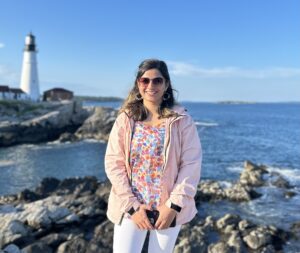Next in The Field: NCWF’s 2025 Scholarship Winners
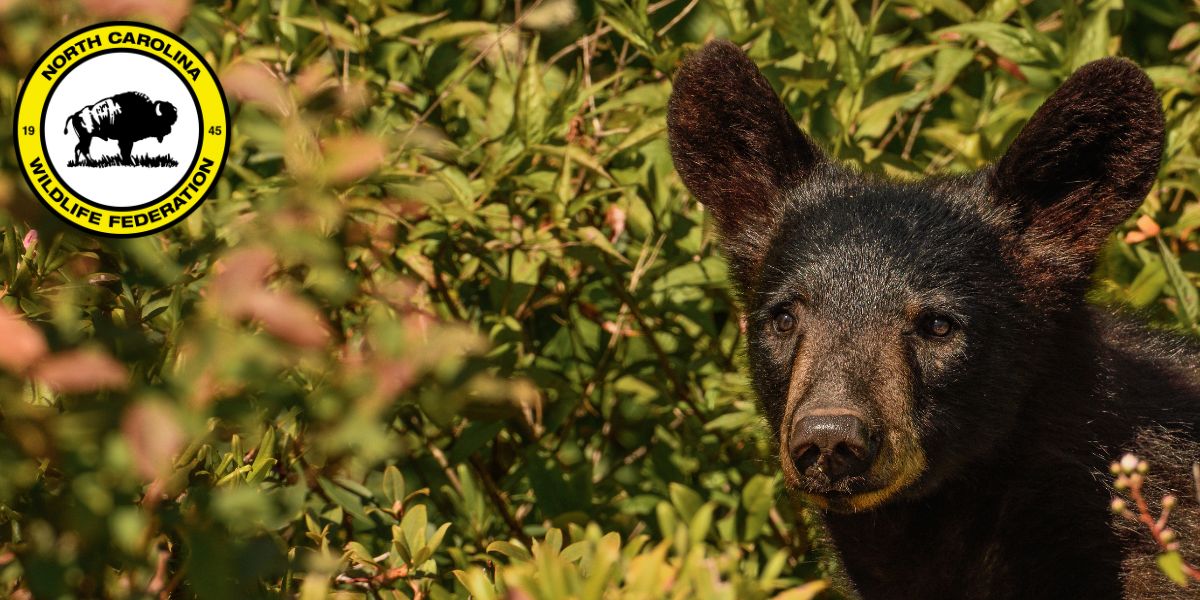
Black bears, seagrass meadows, white-tailed deer genetics, oyster reefs, and endangered crayfish.
Seven undergraduate, graduate, and Ph.D. students attending NC State University and Duke University received 2025 North Carolina Wildlife Federation scholarships to support their studies and careers in wildlife conservation. Mason Ibrahim of Duke University received the $2,500 Alamance Wildlife Club Sponsored Grant, and Sweta Dixit of NC State received the $2,500 Conservation Leadership Scholarship. Isabella Livingston (NC State), Alyssa Weeks (NC State), Annabelle Dyer (Duke University), Devin Raburn (NC State), and Paige Meadows (NC State) each received $1,500 scholarships.
“Early-career conservationists need more than passion – they need opportunity,” said Dr. Liz Rutledge PhD, NCWF VP of Wildlife Resources. “These scholarships help bridge the gap between education and action, giving talented students resources to turn their ideas into meaningful outcomes for wildlife.”
Alamance Wildlife Club Sponsored Grant: Mason Ibrahim (Duke University)
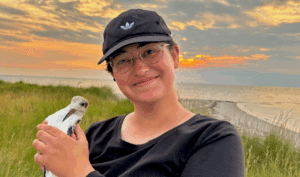 Mason Ibrahim is pursuing a Master of Environmental Management at Duke University, concentrating in Coastal and Marine Systems and Environmental Analytics and Modeling. Her work focuses on large-scale coastal restoration, with an emphasis on revitalizing critical habitats such as seagrass meadows, salt marshes, and oyster reefs. Mason aims to develop restoration strategies that are both ecologically sound and socially inclusive, integrating scientific innovation with local community knowledge. She has gained hands-on experience through volunteer work with Duke’s oyster farm and outreach at the Greensboro Science Center Aquarium. Her goal is to lead collaborative, science-based restoration projects that enhance coastal resilience and biodiversity in North Carolina and beyond.
Mason Ibrahim is pursuing a Master of Environmental Management at Duke University, concentrating in Coastal and Marine Systems and Environmental Analytics and Modeling. Her work focuses on large-scale coastal restoration, with an emphasis on revitalizing critical habitats such as seagrass meadows, salt marshes, and oyster reefs. Mason aims to develop restoration strategies that are both ecologically sound and socially inclusive, integrating scientific innovation with local community knowledge. She has gained hands-on experience through volunteer work with Duke’s oyster farm and outreach at the Greensboro Science Center Aquarium. Her goal is to lead collaborative, science-based restoration projects that enhance coastal resilience and biodiversity in North Carolina and beyond.
Conservation Leadership Scholarship: Sweta Dixit (NC State University)
Sweta Dixit is a Ph.D. student in Parks, Recreation, and Tourism Management at NC State University, where her research centers on the human dimensions of wildlife conservation. Her work focuses on fostering human-wildlife coexistence by engaging local communities and bridging research, policy, and governance. Originally from Nepal, Sweta brings valuable international perspective to her studies, informed by firsthand experience with human-wildlife conflict near protected areas. Her current projects include research on community perceptions of Red Wolf and Florida panther conservation, as well as the development of educational materials to support coexistence initiatives. Beyond her academic work, Sweta has served in leadership roles with The Wildlife Society and international conservation organizations, moderating sessions at global conferences and publishing multiple peer-reviewed articles. She aims to continue working at the intersection of science, policy, and community engagement to create sustainable, inclusive conservation solutions.
Alyssa Weeks (NC State University)
Alyssa Weeks is a rising senior studying Fisheries, Wildlife, and Conservation Biology with a focus on wildlife science. Her research includes white-tailed deer conservation genetics and
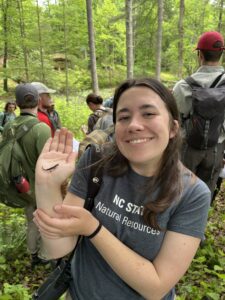
camera trap studies. She has gained hands-on experience in genetic analysis and wildlife research technologies through her work at the North Carolina Museum of Natural Sciences and the Biodiversity Lab. Alyssa plans to pursue graduate school and a career in mammal ecology and conservation research, with a strong interest in tropical wildlife conservation through an upcoming study abroad program in Ecuador. She also serves as Vice President of the Leopold Wildlife Club, supporting future wildlife professionals.
Annabelle Dyer (Duke University)
Annabelle Dyer is a rising junior at Duke University pursuing a
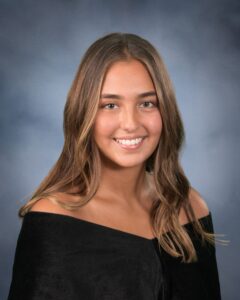
B.S. in Environmental Sciences with a minor in Chemistry. Her work bridges field research, laboratory science, and public communication to advance environmental health and restoration. She has conducted research on tire wear particles in bee pollen and honey in the Rittschof Lab, analyzed chemical data with the Environmental Working Group, and worked in oyster restoration with the Chesapeake Bay Foundation and Duke’s Bass Connections team. Annabelle is passionate about connecting scientific research with real-world solutions that benefit both ecosystems and communities. She hopes to pursue a career that combines environmental research, data-driven analysis, and outreach to inspire actionable change in conservation and sustainability.
Devin Raburn (NC State University)
Devin Raburn is pursuing a master’s degree in Fisheries, Wildlife, and Conservation Biology at NC State University, where her research focuses on endemic and ESA-petitioned crayfish species. Her work aims to generate critical data
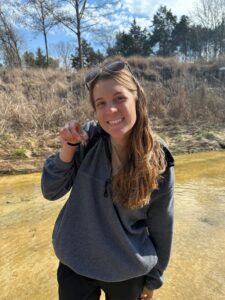
on species ecology, habitat needs, and distribution to inform conservation planning and management. Devin is currently
collaborating with partners on genetic analyses to refine understanding of the Oktibbeha Rivulet Crayfish, a candidate for federal protection, and is cataloging more than 14,000 crayfish and fish specimens for museum collections. Dedicated to both science and community outreach, she serves as Co-President of the NC State Student Subunit of the American Fisheries Society, where she mentors students, organizes conservation events, and leads youth education programs. Devin plans to continue her career as an aquatic ecologist focused on the conservation of at-risk freshwater species.
Isabella Livingston (NC State University)
Isabella Livingston is a Ph.D. candidate in Genetics and Genomics at NC State University, where she is applying molecular tools to advance wildlife health and conservation. Her research integrates genetics, biotechnology, and ecology to address real-world conservation challenges.
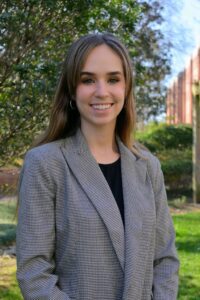
Currently, Isabella is developing a SNP panel to support the identification and population monitoring of black bears across North Carolina, a project conducted in collaboration with the NC Wildlife Resources Commission. Her work aims to strengthen evidence-based conservation and improve wildlife management strategies through the use of genetic data. As an active member of The Wildlife Society’s Molecular Ecology Working Group, Isabella helps review grants and organize professional development workshops for early-career scientists. She plans to continue bridging molecular research and applied conservation to promote the long-term sustainability of species and ecosystems.
Paige Meadows (NC State University)
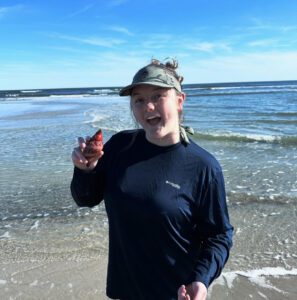 Paige Meadows is a rising junior at NC State University pursuing dual majors in Fisheries, Wildlife, and Conservation Biology and Agricultural Business Management, along with a minor in Environmental Education. Passionate about connecting people with nature, Paige aspires to become a park ranger or environmental educator, helping others understand and protect wildlife and natural resources. She serves as a College of Natural Resources Ambassador and has led outreach efforts for events such as NC State’s Open House and the Festival for the Eno. Paige’s research experience and environmental education work with the City of Raleigh reflect her dedication to fostering conservation awareness in younger generations. She hopes to build a career that combines education and action to inspire lasting stewardship of the natural world.
Paige Meadows is a rising junior at NC State University pursuing dual majors in Fisheries, Wildlife, and Conservation Biology and Agricultural Business Management, along with a minor in Environmental Education. Passionate about connecting people with nature, Paige aspires to become a park ranger or environmental educator, helping others understand and protect wildlife and natural resources. She serves as a College of Natural Resources Ambassador and has led outreach efforts for events such as NC State’s Open House and the Festival for the Eno. Paige’s research experience and environmental education work with the City of Raleigh reflect her dedication to fostering conservation awareness in younger generations. She hopes to build a career that combines education and action to inspire lasting stewardship of the natural world.


